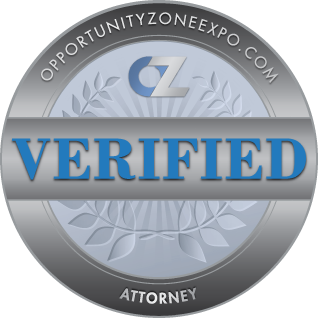Joining forces of the two tax incentives of QSBS and OZ can create a powerful tool for investors to drive investment capital into distressed communities while earning significant tax benefits.


About Phil Jelsma
Phil Jelsma is currently a partner Crosbie Gliner Schiffman Southard & Swanson (CGS3), a Los Angeles-based law firm.
Jelsma has more than 30 years of experience in structuring real estate and business transactions. He specializes in pass-through entity formation and consulting and tax law, with an emphasis on small business and international tax planning.
Jelsma also specializes in limited liability company and partnership business and tax planning, with an emphasis on real estate and nonprofit corporations. He focuses on securities, corporate financing, mergers and acquisitions. He represents buyers and sellers in consolidations, stock and asset purchases, and management buyouts.
Jelsma advises clients about entity formation, the issuance of stock and other ownership interests, recapitalizations and reorganizations, officer and director issues, corporate governance, stock option plans, and contract preparation. Also, he serves as an expert witness on partnership, limited liability company and family business disputes, particularly regarding management, fiduciary duties and allocations.
Prior to joining CGS3 in 2015, Jelsma was a partner in McKenna Long & Aldridge in San Diego for seven years. Before that, he worked for Luce, Forward, Hamilton & Scripps, also in San Diego, for almost 25 years. Earlier in his career, Jelsma worked for the Internal Revenue Service and Arthur Young & Company.
Jelsma has served on the executive committee of the taxation section of the State Bar of California for three years, and he is a participant in American Bar Association tax subcommittees. Jelsma is also an adjunct professor at the University of San Diego School of Law, where he teaches tax law.
Jelsma received a Juris Doctor from Stanford Law School. He earned a bachelor’s degree in business administration at the University of Southern California.
Company
Crosbie Gliner Schiffman Southard & Swanson (CGS3)
Address
12750 High Bluff Drive, Suite 250 , San Diego
TOTAL ANSWERS
31
Answers to Opportunity Zones
31 Questions Answered
OZ Verified
- OpportunityZone.com found no public criminal record on BeenVerified.com
- Active BAR member in good standing
What does it mean to be a VERIFIED member on OpportunityZone.com?
OpportunityZone.com verifies attorney members before placing them on this website. Not all professionals pass the verification process, and we are not paid by members in any way for verified badges. The entire verification process is performed by OpportunityZone.com staff members based in Irvine, California.
We perform a general background check on the member by using BeenVerified.com’s online background check tool. Refer to the disclaimer on BeenVerified.com for details since BeenVerified.com is not a comprehensive database and can miss certain records.
If we encounter any serious criminal violations on BeenVerified.com, this disqualifies the applicant from obtaining the verified badge from OpportunityZone.com. For attorneys that practice law in the united states, a staff member on our team uses best efforts to check the attorney is in good standing with the bar association of the state in which they practice law.
The verified badge does not mean or represent that the attorney has experience or specializes in real estate, tax or securities law. Please consult the state bar or other government-based sites for more information on a particular attorney. Also, use your own diligence to vet any professionals on our website, we don’t make any representations of the qualifications of the professionals listed.
Articles
- November 11, 2019
The pros and cons for investors when it comes to comparing Code Section 1031 and the Opportunity Zone tax incentive.